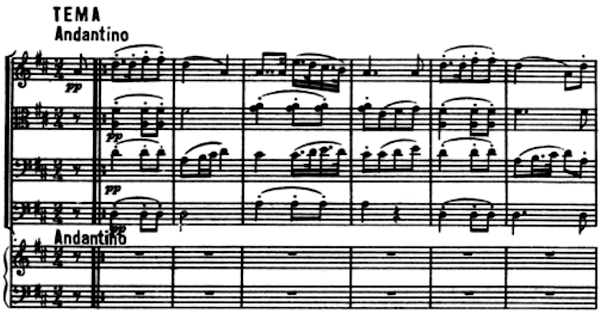AND WE DO SOME MESSIAH LISTENING OF OUR OWN!
[3:46] Toronto Mendelssohn Choir, Toronto Symphony Orchestra, Andrew Davis, cond. EMI, recorded in the Centre in the Square, Kitchener, Ont., Dec. 22-23, 1986
I don't listen regularly to Freakonomics Radio, the hybrid Public Radio broadcast and podcast conducted by Stephen J. Dubner (half of the Freakonomics team, with partner Steven D. Levitt). But while I was slaving away Sunday morning at what I hope will any day now (or any week, or month) yield half a dozen if not a full dozen Sunday Classics posts, all in a row!, I had the radio on. When the show came on, I was startled to hear Stephen D. talking about Messiah (yes, clearly Handel's Messiah!), and explaining that his explaining would require three installments -- all flowing from an unexpected passion for Messiah he contracted during the stressed times of COVID.
Mr. D. also discovered that personal passions for Messiah are widespread, and are found among startlingly varied folks of all sorts -- folks one mighjt hardly have expected to be thusly impassioned. Which led him to talk to a whole bunch of those folks about where this passion has led them. Longtime readers may recall that I have my own personal passion for Messiah, which I've indulged a number of times in this space over the years. (I could dig out some links if anyone cares.) Since I was otherwise occupied Sunday, I wasn't able to listen all that attentively to Part 1 of Making Messiah, and still haven't listened to any of Part 2. I made a point of ascertaining that the whole thing will remain accessible in various podcast forums, including YouTube -- check the website. Farther down you'll find links for Parts 1 and 2; I'll add a Part 3 link when it becomes available.
ONE THING I WANT TO STRESS ABOUT THE PODCAST --
is that this isn't your usual musicological Messiah deep dive that Stephen D. has undertaken. It's more of a cultural and historical perspective. While its findings bear directly on the text of the piece, it presupposes absolutely no knowledge of any of the subject matter. Yet its lines of inquiry seem to have produced results likely to be revelatory even to those of us who think we know the piece pretty well.
The Freakonomics podcast materials include full transcripts of the shows. I thought it could be helpful to dip into the Part 1 transcript to have Stephen D. himself explain the premise.
"Why is Messiah so popular? I think it’s because what it is really about is ... hope. What do I mean by that? Well, this will take some explaining. Three episodes’ worth of explaining."
-- Stephen J. Dubner, in Part 1 of a Freakonomics podcast: Making Messiah
[3:46] Toronto Mendelssohn Choir, Toronto Symphony Orchestra, Andrew Davis, cond. EMI, recorded in the Centre in the Square, Kitchener, Ont., Dec. 22-23, 1986
[A quick stroll through Andrew D.'s 1986 Messiah (which I love!) follows this intriguing news from Freakonomics Radio's Mr. D.]by Ken
I don't listen regularly to Freakonomics Radio, the hybrid Public Radio broadcast and podcast conducted by Stephen J. Dubner (half of the Freakonomics team, with partner Steven D. Levitt). But while I was slaving away Sunday morning at what I hope will any day now (or any week, or month) yield half a dozen if not a full dozen Sunday Classics posts, all in a row!, I had the radio on. When the show came on, I was startled to hear Stephen D. talking about Messiah (yes, clearly Handel's Messiah!), and explaining that his explaining would require three installments -- all flowing from an unexpected passion for Messiah he contracted during the stressed times of COVID.
Mr. D. also discovered that personal passions for Messiah are widespread, and are found among startlingly varied folks of all sorts -- folks one mighjt hardly have expected to be thusly impassioned. Which led him to talk to a whole bunch of those folks about where this passion has led them. Longtime readers may recall that I have my own personal passion for Messiah, which I've indulged a number of times in this space over the years. (I could dig out some links if anyone cares.) Since I was otherwise occupied Sunday, I wasn't able to listen all that attentively to Part 1 of Making Messiah, and still haven't listened to any of Part 2. I made a point of ascertaining that the whole thing will remain accessible in various podcast forums, including YouTube -- check the website. Farther down you'll find links for Parts 1 and 2; I'll add a Part 3 link when it becomes available.
ONE THING I WANT TO STRESS ABOUT THE PODCAST --
is that this isn't your usual musicological Messiah deep dive that Stephen D. has undertaken. It's more of a cultural and historical perspective. While its findings bear directly on the text of the piece, it presupposes absolutely no knowledge of any of the subject matter. Yet its lines of inquiry seem to have produced results likely to be revelatory even to those of us who think we know the piece pretty well.
The Freakonomics podcast materials include full transcripts of the shows. I thought it could be helpful to dip into the Part 1 transcript to have Stephen D. himself explain the premise.
From the transcript of Part 1 of Making 'Messiah':
"The Greatest Piece of Participatory Art Ever Created"































